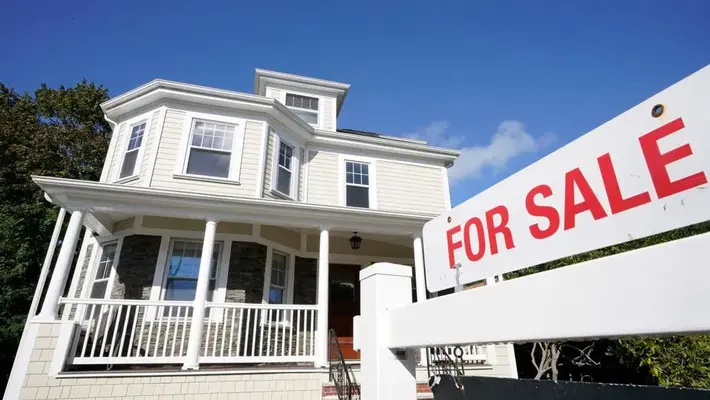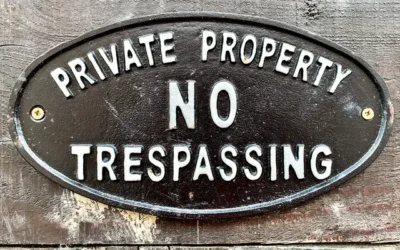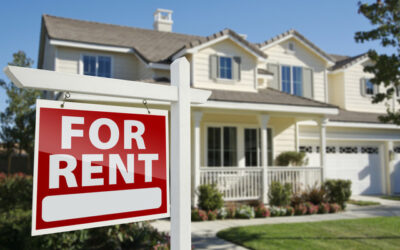When buying a home, it’s easy to focus on the obvious expenses like the down payment and monthly mortgage payments. However, there are numerous hidden costs that can catch you by surprise if you’re not prepared.
These hidden costs can quickly add up, affecting your overall budget and the affordability of your new home. Understanding these additional expenses is crucial for homebuyers to make informed financial decisions.
In this article, we’ll explore five hidden costs of buying a home, provide current housing market data, and share expert advice to help you prepare for these costs.
1. Closing Costs
One of the first surprises many homebuyers encounter is the amount of money needed for closing costs. These are fees paid at the end of the home-buying process when the property is officially transferred from the seller to the buyer. Closing costs can include:
- Loan Origination Fees: Around 0.5% to 1% of the loan amount, covering lender fees.
- Appraisal Fees: Typically $300-$500, but this can vary based on the property's size and location.
- Home Inspection Fees: Around $300-$500, depending on property size and region.
- Title Insurance: Between $500 and $1,000, protecting both the lender and buyer.
- Property Taxes: Buyers often need to prepay property taxes at closing, which can vary based on the local tax rate.
- Private Mortgage Insurance (PMI): If applicable, PMI can be required for buyers with less than 20% down payment.
The average closing costs in the U.S. range between 2% and 5% of the home’s purchase price. For example, on a $300,000 home, closing costs could be anywhere from $6,000 to $15,000.
“Many homebuyers are surprised by how quickly closing costs add up. It’s crucial to account for this expense when budgeting for your new home,” says John Greene, Senior Loan Officer at HomeBridge Financial Solutions.
In addition to these costs, some buyers may need to pay for discount points to lower their mortgage interest rate, which further increases upfront costs.
| Closing Cost Components | Estimated Amount |
|---|---|
| Loan Origination Fees | $1,500 - $3,000 |
| Appraisal Fees | $300 - $600 |
| Title Insurance | $500 - $1,500 |
| Legal Fees | $500 - $1,000 |
| Property Taxes (Prorated) | Varies by location |
In 2021, average closing costs for purchase mortgages rose significantly. According to CoreLogic’s ClosingCorp, closing costs increased by 13.4%, reaching an average of $6,905 per transaction. This was up from the previous year's average of $6,451. The increase in closing costs is reflective of rising home prices, which soared during the pandemic-driven housing boom. Despite the rise, the average closing costs as a percentage of the home purchase price actually decreased slightly to 1.03%, compared to 1.06% in 2020. This suggests that while total closing costs went up, the larger home prices diluted their percentage of the overall cost.
The report highlights the importance of factoring in these increased costs when budgeting for a home purchase, as they can vary by state and loan type. For more details on state-specific data, visit the CoreLogic report.
2. Home Inspection and Appraisal Fees
Before finalizing a home purchase, you’ll likely need to pay for a home inspection and appraisal. These services ensure that the home is worth its asking price and that it’s in good condition.
- Home Inspection: This service typically costs between $300 and $500 and involves a thorough examination of the home’s condition, including plumbing, electrical systems, and structural integrity. Although not always required, a home inspection is highly recommended to avoid expensive surprises after you move in.
- Appraisal: Lenders usually require an appraisal to verify the home’s market value. Appraisal fees generally range from $300 to $600.
“A home inspection is one of the best investments you can make before purchasing a property. It can reveal potential problems that might cost thousands in repairs,” advises Sarah Logan, Real Estate Agent at Harbor Realty Group.
If the inspection uncovers significant issues, you may be able to negotiate with the seller for repairs or a price reduction.
| Service | Estimated Cost |
|---|---|
| Home Inspection | $300 - $500 |
| Appraisal | $300 - $600 |
3. Property Taxes
While property taxes are often discussed during the buying process, they can still come as a surprise when you see the actual figures. Property taxes vary widely based on your home’s location, with rates typically ranging from 0.3% to 2.2% of the home’s assessed value annually.
For example, in New Jersey, property taxes are among the highest, with an average rate of 2.47%, while in states like Hawaii, the average property tax rate is only 0.27%. A $300,000 home in New Jersey could incur over $7,000 per year in property taxes, while a similar home in Hawaii might cost just $810 per year in taxes.
It’s important to calculate your estimated annual property tax bill and include it in your overall home-buying budget.
| State | Average Property Tax Rate (% of Home Value) | Average Annual Property Tax |
|---|---|---|
| New Jersey | 2.49% | $8,362 |
| Illinois | 2.27% | $5,400 |
| Texas | 1.80% | $4,500 |
| California | 0.76% | $3,800 |
| Florida | 0.83% | $2,800 |
| New York | 1.72% | $6,800 |
| Washington | 1.03% | $4,100 |
Source: Tax Foundation
4. Homeowners Association (HOA) Fees
If you’re buying a home in a neighborhood governed by a homeowners association (HOA), you’ll need to account for HOA fees. These fees help maintain common areas, community amenities, and general upkeep of the neighborhood.
HOA fees vary greatly, depending on the community and the services provided. Fees can range from $200 to $600 per month or even more for luxury communities. Some HOAs may also require one-time initiation fees.
“Before buying a home in an HOA community, make sure to review the fees and understand what services are covered. These fees can significantly impact your monthly housing costs,” says Jennifer Adams, CEO of Prime Realty Solutions.
Additionally, homeowners should be aware that HOAs can impose special assessments for major repairs or improvements, such as roof replacements or landscaping upgrades, which could lead to unexpected costs.
5. Maintenance and Repairs
Owning a home comes with ongoing maintenance and repair costs that can quickly add up, especially if the home is older or hasn’t been well maintained. According to experts, homeowners should budget 1% to 3% of the home’s value annually for maintenance and repairs.
For instance, on a $300,000 home, that’s $3,000 to $9,000 per year for routine upkeep such as:
- Roof repairs
- Plumbing and electrical work
- HVAC maintenance
- Landscaping
- Appliance replacements
Some years may be less expensive, while others may require major expenses such as replacing a furnace or fixing a leaky roof. These are unavoidable aspects of homeownership, and it’s important to factor them into your budget.
“Many first-time homebuyers underestimate the cost of home maintenance. Routine upkeep and unexpected repairs are part of homeownership and need to be factored into the overall cost,” says Michael King, President of Skyline Property Advisors.
The Bottom Line
Buying a home involves more than just the purchase price. Hidden costs such as closing fees, inspections, property taxes, and maintenance can add up quickly, affecting your overall budget.
By planning for these additional expenses, you’ll be better equipped to handle the financial responsibilities of homeownership.
FAQs
What are closing costs in a home purchase?
Closing costs are fees paid at the end of the home-buying process. They include loan origination fees, title insurance, appraisal fees, and legal fees, typically ranging from 2% to 5% of the home’s purchase price.
Are home inspections mandatory?
While not always mandatory, home inspections are highly recommended. They help uncover potential issues with the property that could cost thousands in repairs.
How much should I budget for home maintenance?
Experts recommend budgeting 1% to 3% of the home’s value annually for maintenance and repairs. This helps cover routine upkeep and unexpected expenses.
What are HOA fees?
HOA fees are monthly or yearly payments required in some communities. These fees cover maintenance of common areas, amenities, and general neighborhood upkeep.
Can I negotiate closing costs?
Yes, closing costs are often negotiable. You may be able to negotiate with the seller to cover some or all of the closing fees, or ask your lender about reducing certain costs.
Do property taxes vary by state?
Yes, property taxes vary significantly by location. States like New Jersey have high property tax rates, while states like Hawaii have much lower rates.
What is a special assessment in an HOA community?
A special assessment is an additional fee imposed by an HOA to cover unexpected major repairs or improvements to the community, such as roofing or landscaping upgrades.








